Dalit in Bangladesh Untouchables and Movement
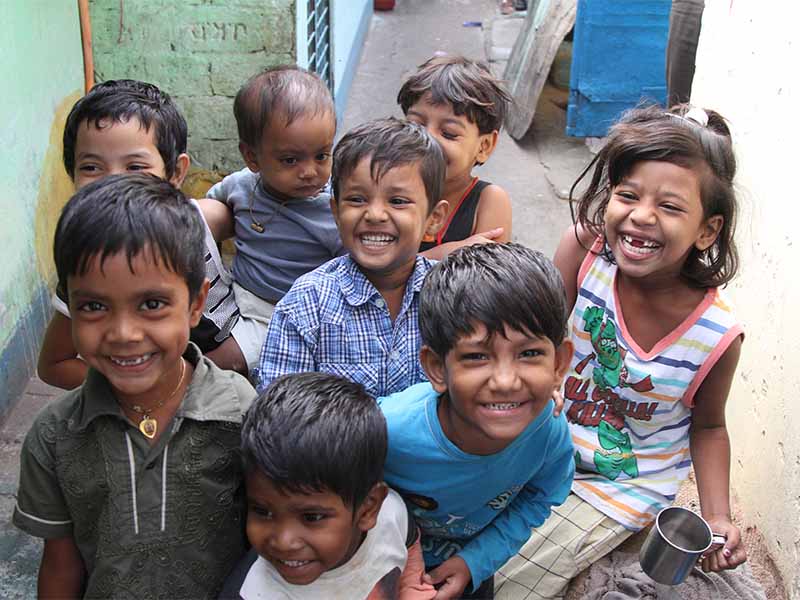
Dalit in Bangladesh
They are untouchables. They are Dalit. They belong to the lower class of society. Treading their shadow is a sin. Stepping on their trodden track is a sin. It is quite unthinkable to drink water in the same glass they use let alone take food at the same table. It is a sin to knowingly use the water of the same well. The Dalit people are encompassed by a high wall of restrictions. They are strictly forbidden to visit temples or read holy texts and scriptures.
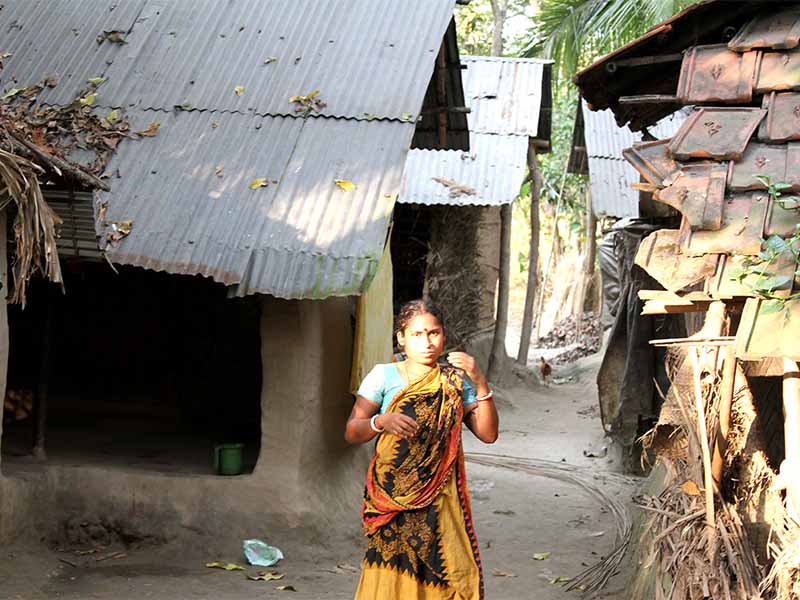
About 5.5 million people have been estimated to belong to Dalit communities out of 160 million people in Bangladesh. There are 94 categories of Dalit communities. Among them, the major communities are Bashfore, Hela, Lalbegi, Domar (people who do autopsy), Raut,Hari, Maghaia, Balmeki, Telegu, Kanpuri, Hrishi, Robidas, Jele (fishermen), Sannashi, Bhogobene, Behara, Dai, Dhopa (laundrymen), Hazam (people who do circumcision of children), Nikari (people who sell fish and chop them), Shikari (hunters), Paroi, Bazadar (drummist), Manta, Mohota, Rajbanshi, Roshua, Sahaji, Patni (boatmen), Kaiputra, Pundru Xatrio, Shobdokar, Teli (people in oil trade) etc.
Division of caste and apartheid problems exists not only in Bangladesh but also in many countries in Asia and Africa. The problem of Dalit caste system has been continuing for ages and it has its root deeply ingrained in the religious caste system mainly because of lower types of vocation and labour. Now, this community is termed Dalit or Harijon. The term ‘Dalit’ means those who are neglected or those who are subject to oppression. So, they have always been neglected, oppressed and isolated through generations. The word ‘Dalit’ connotes a big community that comprises local and regional different people from different religions like Hindus, Muslims, Buddhist and Christians. The term unanimously refers to those untouchable, neglected, isolated and hated groups of people, no matter whether you call them Dalit or Harijon. It means that disparity is quite crudely predominant in the case of these people. To be precise they have not been given the status of human beings in society. That is why the social reformers exerted their efforts from time to time to reinstall their places in society. Mahatma Gandhi explained that Harijzan means sons of Hari or Iswara. Baba Ambedkar called it Dalit. All these have been done to uphold their status. Some sarcastic criticism is also available in this respect as some consider these explanations as political means of fulfilling the self-interest of the politicians.
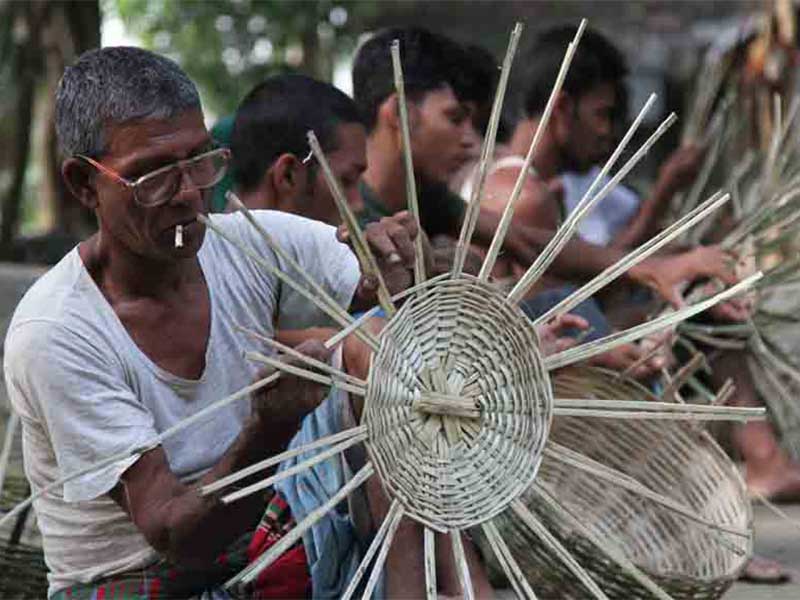
Dalit Bangladesh is subject to political, economic, cultural and social disparities. They are deprived of many facilities of the state. This division among them emanates from religion and vocation. The Dalit Bangladesh community has always been excluded from every development plan in the post-independent era of Bangladesh. So many causes like state and social disparity and deprivation, untouchability, hatred, social isolation, lack of dignity in the society, diversifying profession, landlessness, evacuation from their settlement etc. contribute to the marginalization of this community. We can have a glimpse of the prime causes below:
Untouchability and lack of dignity
The real poverty of the Dalit community lies more in their humanitarian backgrounds like social indignities and untouchability rather than in financial crisis. For them there is no entry to hotels and restaurants or saloons; even if they are allowed to, they have fixed utensils for them to take food and tea. Sometimes they even have to carry their own utensils for taking food. They are not given permission to sit among respectable or common other people in society. They have no access to the temples. In different social programs, there is a different arrangements for the Dalit people. They can’t rent houses. They are compelled to live in an isolated place in society. This attitude applies to every Dalit community whether they live in the town or village. The places in which this community lives are usually called Muchipara, Sweeper Colony, Hrishi Para, Rabi Das Para, Methor Patti, Kolu Para, Buno Para etc. Actually, this history is a creation of the mainstream people of society. It finds an echo in the speech of Harijon Babulal, “ We clean toilets, We sweep garbage. That is why the so-called educated society looks upon us with hatred as members of the low class and they consider us untouchable. But what would have happened if we had not swept and cleaned these dirty things?” But our constitution leaves no scope for inequality and disparity for any citizen of the country.
Access to Education
Dalit Bangladesh is regularly exposed to various kinds of disparity and discrimination in respect of education. Even though many Dalit children go to schools, they finally drop out as they fail to cope up with the adverse and hostile environments in schools. Other students do not want to sit beside them. Even teachers show signs of negligence and hatred. Often they become victims to slang and indecent use of language from their peers. Dalit children are sometimes made to clean the toilets and they are forced to sit on back benches. These abuses leave scars in their psyche and they feel rather discouraged to go to school. Moreover, as many members ( from 7 to 8) live in a cramped rooms, the Dalit children often do not get a learning-friendly environment at home to continue their education. For ages, this community had been segregated from education. So they fail to cope with the competitive mainstream education of the country. On the other hand, school authorities do not include the potential children of Dalit communities in their census for school-going children in a locality. A study shows that 32.4% Dalit children have taken primary education but only 10.8% could successfully complete the primary level, 7.8% junior level, 2.9% SSC and 0.76% HSC level. The Honourable Prime Minister of Bangladesh has sent directives to concerned authorities to facilitate admission quota for Dalit children to ensure their rights for education. But the directives have yet not been implemented.
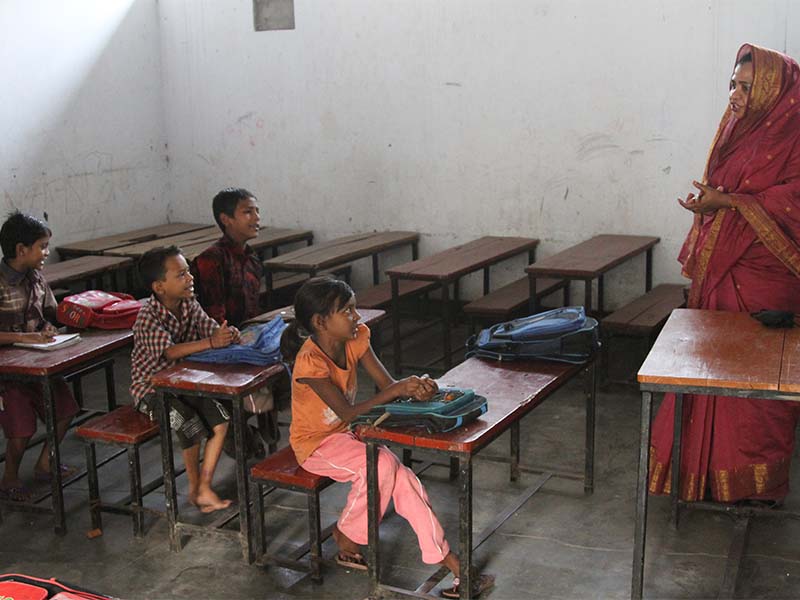
Housing and Land
Most of the people in Dalit community are landless. Though people of some Dalit communities have their own places to live, the cleaner (Harijon) people have no house or land of their own. Most of them live in city corporations or Municipality colonies. For ages, a 96-square feet house has been accommodating people of three generations like grandparents, parents, children and grandchildren. This situation stands as a cruel barrier to mutual emotion and feelings between husband and wife. Other members have to wear an air of ignorance and pretension. What could be more humiliating than this? Any negligence and mistake on their part are met with threats from the authorities of the municipality to oust them from the house. Sometimes many of their houses are locked to bar their entry. This is a sheer violation of human rights. Lack of proper sanitation and pure drinking water has exposed this community to regular health threats as many people live in dingy and congested places. Even health workers shy away from visiting these places. Thus lack of knowledge in reproductive health results in a high growth rate and also causes health threats to Dalit women.
Wages and job-displacement
Many factors are causing Dalit persons to lose their jobs. These people are also subject to discrimination on the issue of wages. Traditionally the Harijon people have been working as cleaners in different public and private sectors including City Corporation and municipality. But their wages are very meagre. It ranges from 800 to 1200 per month and 300 to 1000 in some municipalities. They usually work in master roll as their jobs are never made permanent or confirmed. If some applications with the address to Dalit colony, they are not usually called for viva. Dalit candidates who apply for other posts according to their educational qualifications are usually encouraged to apply for the posts of sweepers and cleaners. Again the Harijans (Cleaners) are suffering job displacement as more and more people from the mainstream society are snatching away their professions as cleaners and sweepers. Moreover, the mainstream people take their jobs as cleaners but get it done with low wages by the Harijons. The Dalits do not get the opportunity to enter alternative professions because of social untouchability and hatred. As a result, the rate of unemployment is gradually rising to lead to unsocial activities.
Justice and Participation
The Dalit in Bangladesh is deprived of the right to justice and security. The girls of this community especially those who are students are victims of different kinds of sexual harassment. Even those who become victims of rape cannot get proper justice. Dalit women who go outside for work suffer from insecurity. They have no participation in the local judicial body. They have to call other leaders (Matbor) to settle their personal problems. They have no representation in the committees of schools, colleges and other village-based development organizations. Their participation in political parties is almost zero.
Violence against Dalit Women
Dalit women are subject to different oppressions. Dalit women are a minority within the minority and marginalised among the marginalised. Dalit women undergo three types of oppression. Firstly because they are women, secondly they are Dalit and finally, they are Dalit women. Even though Dalit women are victims of rape, murder, and sexual harassment, they cannot get proper justice. Domestic violence is an everyday affair for Dalit women. Dalit (Harijon) men come home drunk and torture their wives. Dalit women are deprived of their wages. Participation of Dalit women in the traditional arbitration and Salish is almost unthinkable. The discrimination extends itself to every layer including girls’ education. As they grow older, they are not allowed to go to school. They are also victims of early marriage. Dalit women are deprived of government facilities such as widow and old age benefits, maternity grants etc.
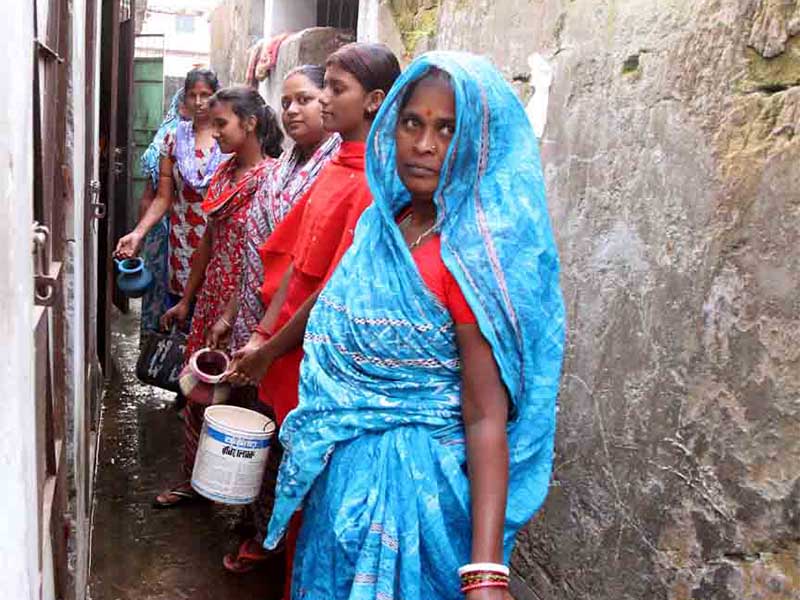
Lack of Government Services
The Dalit communities are deprived of almost all state facilities and services. They are hardly seen in government, and non-government offices including Union councils. They are regularly deprived of the facilities and services like VGD, VGF, old age, disability and widow benefits, maternity grants, Kabita, Kabikha etc. But these services of the government strictly define in its policies to prioritize the inclusion of the backward sections of the society and there are also directives from the Ministry to ensure these facilities to the marginal people. Not very far, even after the independence the Harijons were entitled to rationing system in which they could get rice, wheat, flour, sugar, pulse etc. at a cheap rate and some other necessary goods like soap, dresses were given free of cost from the municipality or city corporation. But now they don’t get these facilities anymore.
Lack of Information
Lack of information remains to be one of the major problems of the Dalit Bangladesh. Dalit communities still don’t exactly know what facilities, in particular, are available from the government, where one can get these facilities or services, and which steps can be taken to get the services. Those who win the elections by the votes of these communities deny them the facilities they promised. Moreover, the government, political parties and lawmakers do not have correct information about the real condition of the Dalits. Information, technology and knowledge about health, education, agriculture and natural disaster do not reach them.
Political Marginalization
Politically, the Dalit Bangladesh communities are marginalised. Political parties do not have Dalit people as members. They are used as vote banks of the political parties. If they participate in the election, people raise objections and try to form a public opinion against them saying ‘muchi Thekao’(stop the cobblers). Again many Dalits cannot vote for their chosen candidate. Pressure from outside influences their choices. In many cases, the Dalits remain stranded in their colonies in the time of election as they are usually barred from casting their votes and become subject to torture and oppression by defeated candidates. Their presence is almost at zero level in the parliamentary or local government system.
Constitutional pledges of Bangladesh
The supreme law of Bangladesh is its constitution. According to our observation, 10 clauses of the constitution are being violated in the case of the Dalit communities. People are the source of all power or people are the owners of the state. But recognized as part of the owners of the state, the Dalit Bangladesh communities are being subject to discrimination and hatred in many ways. These people are still continuing their struggle and movement for establishing their rights and dignity even after 42 years of independence. The constitution promises to ensure basic human rights, freedom and respect for the dignity and value of people. There is a provision in the constitution for arranging basic rights like food, cloth, housing and medical facility. There is also provision for the arrangement of free and compulsory education and equity for all citizens. But these promises seem to be limited to books. The constitution also pledges to dissolve disparity among citizens and the state will take effective steps for equal distribution of wealth. Though the constitution says that all citizens are equal in the eye of law, the Dalit communities are deprived of all the services and facilities from the state. It also says that no citizen will be subject to discrimination based on religion, colour, caste, creed, gender and place of birth. No citizen will also be barred from entering any amusement park or admission in an educational institution. The constitution also pledges special provisions for women, children and any backward section of the society. But nobody seems to care about these things. No one seems to be paying heed to these laws. The old adage ‘in theory only, not in practice seems to apply in this case. The constitution reserves their rights but the question still puzzles us, “How far could we implement the clauses of the constitution?
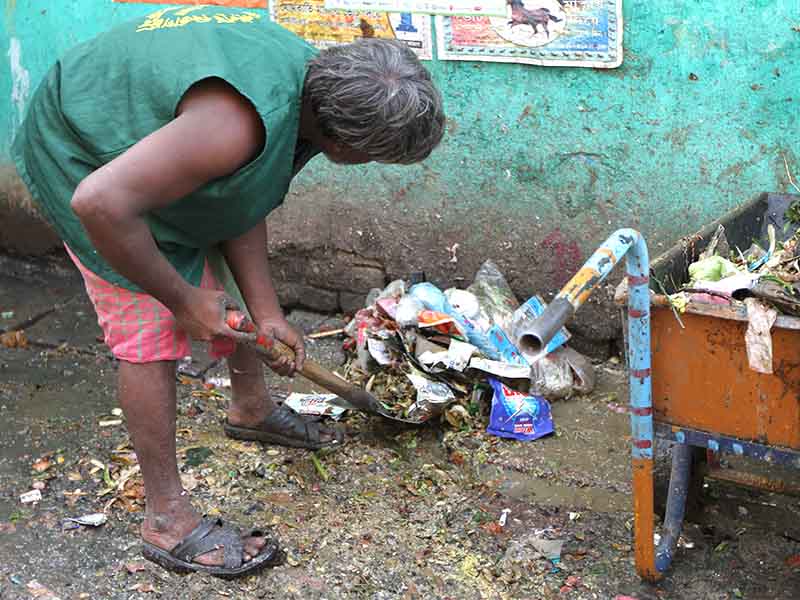
On 10th December 1942 UN General Council declared the charter for universal human rights. In Para 1 of the Declaration Charter, there is a reference to equity in human dignity and rights. Para 2 refers to the issue of discrimination. Para 3 to 27 talk about rights.
In Conclusion
Our society takes important services from a section of people but unfortunately, it does not recognize them in its structure- this sort of contradictory attitude prevails in society. This neglected, hated and isolated section of the society is still riddled with hunger, poverty, frustration, deprivation and hatred even in this civilized and science-oriented society because of this immoral, abominable and disastrous social infrastructure. This sense of untouchability has its root in religion and politics. It has narrowed the area of human living. It has violated human dignity. This has also created social hatred against men. Historically the Dalits and the Harijons had their profession defined and specific even though they were segregated from society. Maybe, some professions of the Dalits have died out in course of time such as (carrying palanquins). Even if they exist, these professions are no more certain. But social untouchability about them has remained ever strong because of segregation and seclusion. Overcoming socio-economic backwardness and tackling social hatred is not something that can change overnight because it has been continuing for ages.
Writer: Dewan Akhtaruzzaman, Director, FAIR
